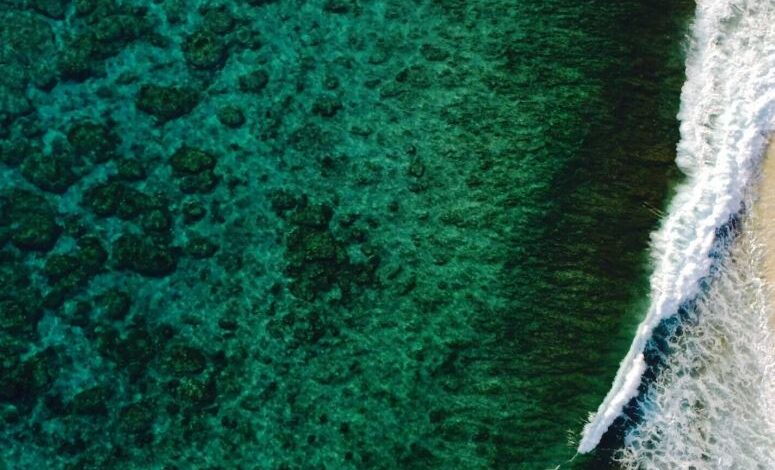Oceans are changing color: more and more green for climate change

A study published in Nature certifies that the oceans are changing color in the last 20 years
(sustainabilityenvironment.com) – The blue planet is becoming greener. Not because the forests are regaining ground, but because the oceans are changing color. And the prime suspect in this process is climate change on Earth, to which man contributes in a decisive way.
It is a global phenomenon that cannot be explained by natural variability alone. This is certainly the international group of researchers, from among others MIT and the British National Oceanography Center, who have just published a study on the subject in the journal Nature in which they investigate the changes that have occurred in the last 20 years. The team found that more than half of the oceans are changing color: 56% of the global marine surface. This is an area larger than the entire surface occupied by the land. Most affected are the tropical regions.
We still don’t know exactly why the oceans are changing color
What does the change from blue to green depend on? It is the result of a change in the populations of phytoplankton, the microscopic marine organisms that form the basis of trophic chains in the oceans. Although the researchers are not able to identify exactly what are the anthropogenic factors that affect this change, nor what can be the concrete consequences on surface marine ecosystems.
“I’ve run simulations that have been telling me for years that these changes in the color of the oceans would happen,” says study co-author Stephanie Dutkiewicz, senior researcher at the Department of Earth Sciences, the Atmosphere and Planet of MIT and the Center for Global Change Science. “To see it really happen is not surprising, but frightening. And these changes are consistent with those induced by man on our climate”.
“This provides further evidence of how human activities are influencing life on Earth on a huge spatial extent,” adds the lead author of the study, B. B. Cael of the National Oceanography Center in Southampton, UK. “It is another way in which man is influencing the biosphere”.





